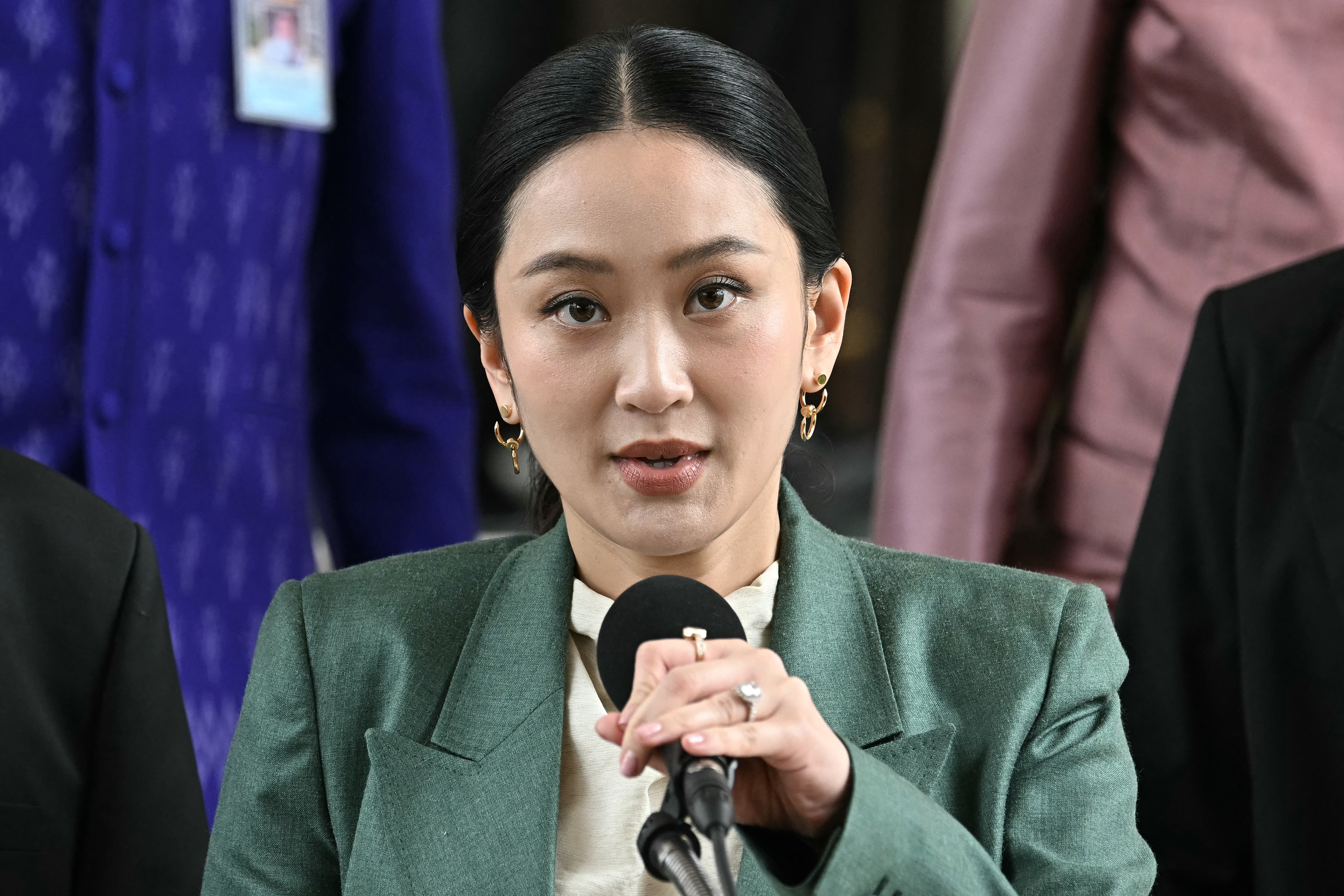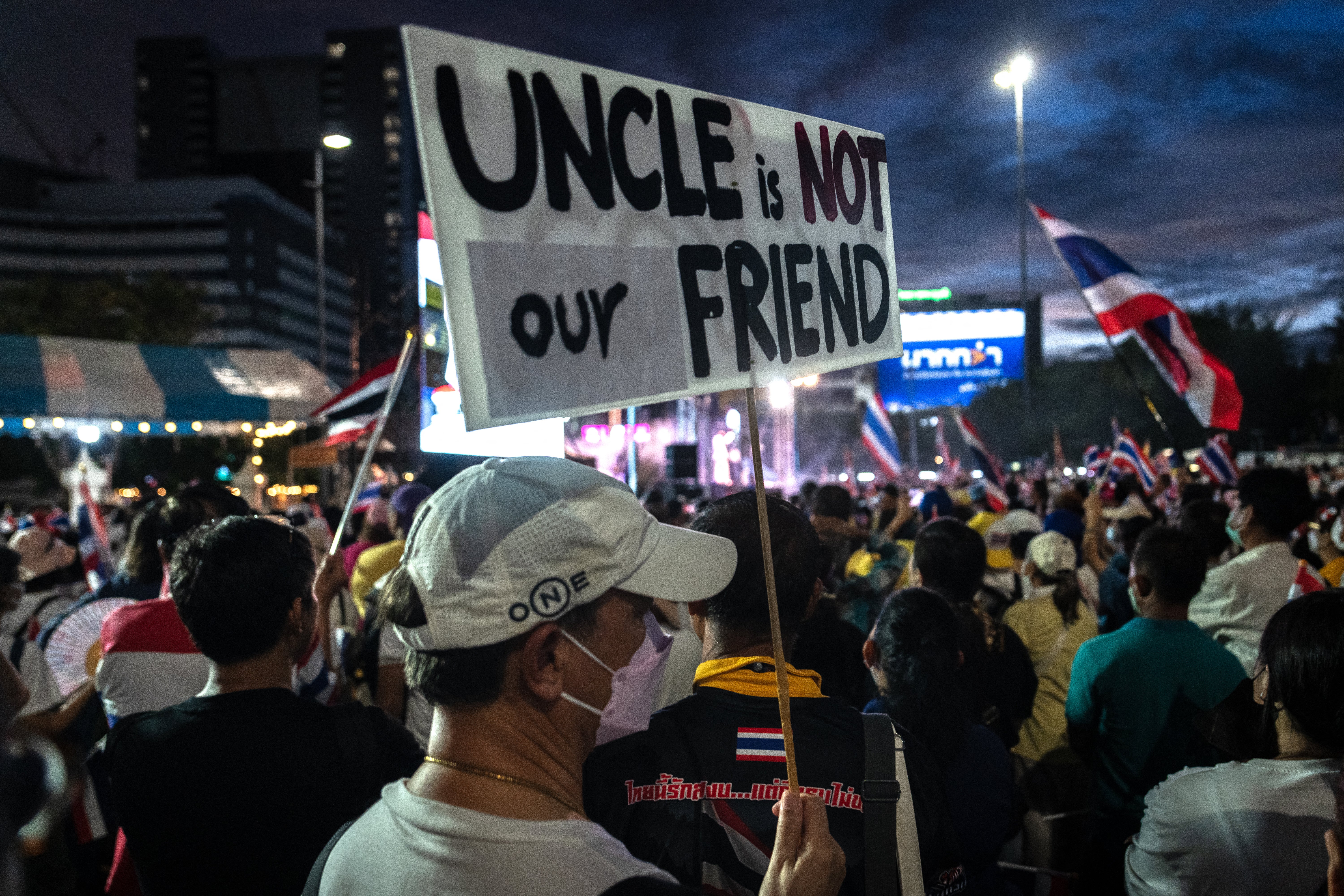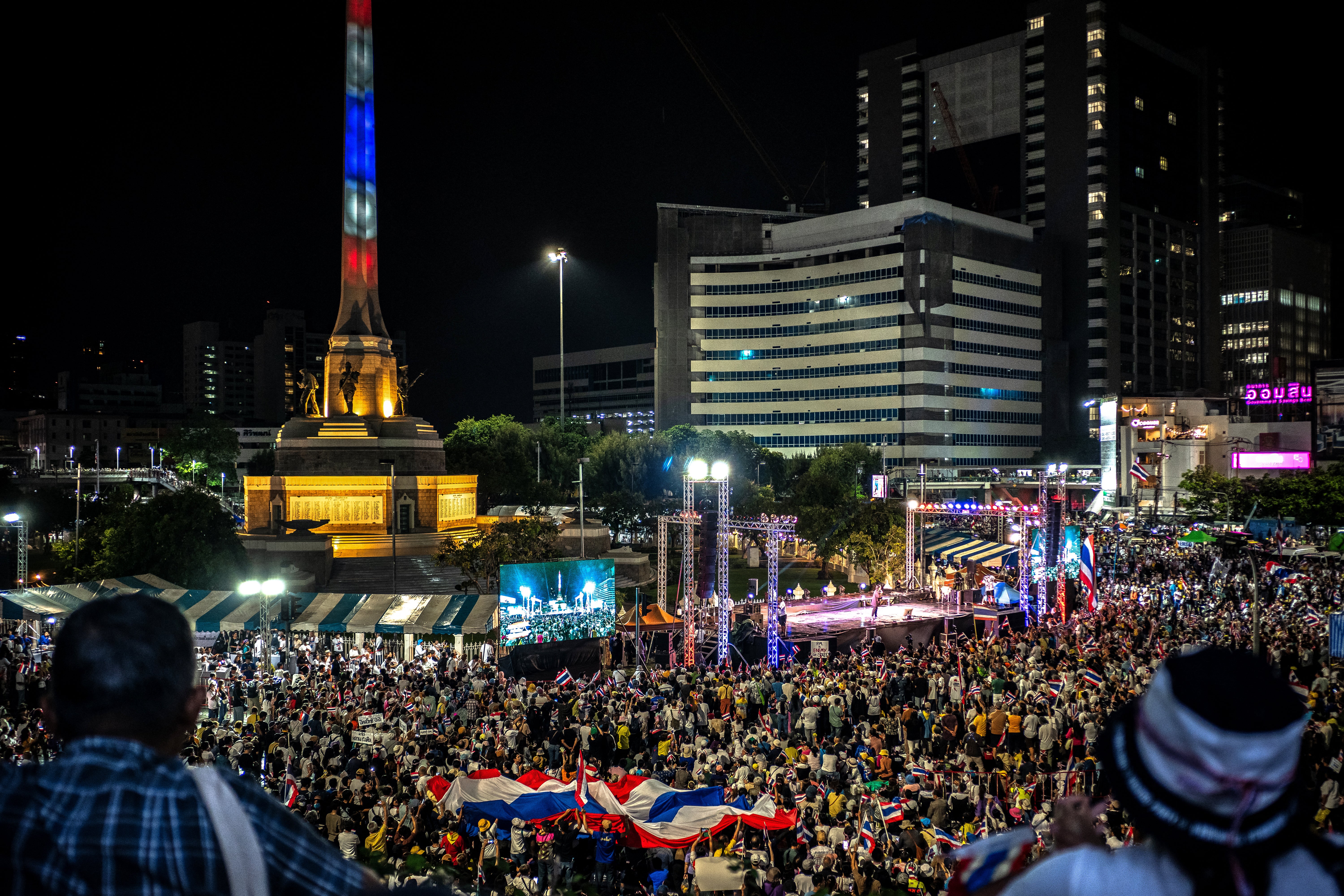Thailand’s prime minister, Paetongtarn Shinawatra, has been dismissed following a ruling by the country’s constitutional court on Friday over allegations she violated ministerial ethics in connection with a leaked phone call with former Cambodian leader Hun Sen.
Her dismissal comes weeks after her suspension and renewed border tensions between the two southeast Asian nations, shaking Thailand’s already fragile political landscape.
On Friday, the constitutional court ordered the disqualification of Ms Shinawatra from office after finding her guilty of ethical misconduct over the leaked phone call. This makes Ms Paetongtarn the fifth prime minister since 2008 to be stripped of office by the powerful court.
“[Paetongtarn]’s actions did not preserve the nation’s pride and considered personal interest over the country’s, which seriously violated or failed to follow the ethical standards,” the court said in its verdict.
Her move has “caused the public to lose trust and faith towards the Thai premiership” and caused “grave damage” to her work, the court said.
“It has caused the public to cast doubt if [her actions] would benefit Cambodia more than benefitting the nation’s interest.”
The move comes after a petition was filed accusing her of undermining Thailand’s military and national interest by describing a Thai Army commander as her “opponent” and referring to Mr Hun Sen in familial terms – calling him “uncle” – during a private conversation that was later leaked.
Ms Shinawatra’s duties were handed over to the deputy prime minister Suriya Juangroongruangkit in a caretaker capacity when she was suspended in July, and he is expected to continue in the role until a new prime minister is elected.

Impact of phone conversation on Thailand’s politics
The leaked conversation, reportedly intended to de-escalate tensions following a deadly cross-border clash on 28 May that left one Cambodian soldier dead, has sparked a political storm.
Critics, particularly from the conservative bloc, accused Ms Shinawatra of appeasing Cambodia and disrespecting the military. The backlash has weakened her Pheu Thai Party-led coalition, which was already dealing with internal strains. One party has exited the alliance, and a no-confidence vote in parliament is now anticipated.
Political scientist Dr Purawich Watanasukh of Thammasat University said the temporary suspension would contribute to further instability.
“In the longer term, the government’s stability is likely to become even more fragile due to the uncertainty surrounding Paetongtarn’s situation,” he told Al Jazeera. A final ruling could take weeks or even months, leaving the administration in a state of limbo.
Ms Shinawatra is the third member of her family to serve as Thailand’s premier, following her father, Thaksin Shinawatra, and her aunt, Yingluck Shinawatra.
Both were ousted in previous coups and court rulings widely viewed as politically motivated. Analysts suggest dismissal continues this pattern of judicial intervention against the Shinawatra dynasty.

Dr Pavin Chachavalpongpun, a professor at Kyoto University’s Centre for Southeast Asian Studies, described the court’s decision as a move that erodes Ms Shinawatra’s authority and legitimacy.
“This decision could deepen rifts within Pheu Thai’s coalition and embolden its rivals, both inside and outside parliament,” he said, adding that such instability could distract the government at a time when the country faces serious economic and geopolitical headwinds.
What is the border dispute between Thailand and Cambodia?
The controversy and her suspension came as Thailand grappled with a resurgent border conflict with Cambodia, rooted in longstanding disputes over land demarcation.
The immediate cause of the renewed hostilities was an exchange of gunfire in a contested frontier zone on 28 May, resulting in the death of a Cambodian soldier. Both nations claimed they acted in self-defence, but tensions have escalated since.
The 817km boundary between Thailand and Cambodia, drawn during the French colonial era in 1907, has never been fully demarcated.
Cambodia has historically relied on the original French maps to assert its claims, while Thailand contests the accuracy of those documents. Periodic violence and nationalist flare-ups have punctuated efforts to resolve the disputes.
One of the most contentious sites is the Preah Vihear temple, an 11th-century Hindu monument perched atop a cliff along the border.
The International Court of Justice (ICJ) awarded the site to Cambodia in 1962, but Thailand has long disputed the ruling, particularly the surrounding land.
Armed clashes over the temple flared in 2008 when Cambodia applied to list it as a Unesco World Heritage site, with further violence erupting in 2011 and again in 2013, when the ICJ reaffirmed Cambodia’s sovereignty over the area and ordered Thai troops to withdraw.
Although the latest incident in May occurred away from the Preah Vihear temple, the area remains symbolic of broader territorial and historical grievances.
Cambodian officials have indicated they plan to take their claim to four unresolved areas, including the site of the most recent clash, back to the ICJ. Thailand, meanwhile, insists that all border disagreements should be settled through the bilateral Joint Border Commission established in 2000. Officials in Phnom Penh have argued that this mechanism has failed to produce results and should be abandoned in favour of international arbitration.
Controversy around Shinawatra’s conciliatory tone
In response to the 28 May clash, both countries issued statements pledging to maintain peace and pursue dialogue. However, each side has taken aggressive steps short of military confrontation. Thailand imposed heavy restrictions at its border, allowing crossings only for humanitarian or essential purposes. Cambodia retaliated by halting imports of Thai fruits, vegetables, fuel and cultural content such as films and TV shows. It also severed select internet and electricity links, further raising tensions.
The political implications of the conflict have added pressure on Ms Shinawatra’s administration. While her government initially struck a conciliatory tone, the Thai military adopted a more assertive stance, warning of a potential “high-level operation” if Thai sovereignty was perceived to be under threat.
Ms Shinawatra later echoed these remarks while reaffirming Thailand’s preference for peaceful resolution. The mixed messaging underscored deeper divisions between her civilian government and the military establishment – a divide that has shaped Thai politics for decades.

Critics viewed the court’s decision to suspend Ms Shinawatra as another episode in the protracted power struggle between elected governments and Thailand’s conservative establishment, which includes the judiciary, military and royalist elites. Her predecessor, Srettha Thavisin, was also removed by the constitutional court in 2024 over alleged ethical violations. The same constitutional provisions – specifically Article 170, which requires ministers to demonstrate “evident integrity” – have been invoked again in this case.
Dr Prem Singh Gill, a constitutional law scholar at Muhammadiyah University in Indonesia, said the case raised broader concerns about judicial overreach and the politicisation of constitutional ethics.
“This isn’t merely political theatre; it’s constitutional adjudication with serious separation of powers implications,” he said. He also pointed out that diplomatic exchanges such as the one between Ms Shinawatra and Mr Hun Sen are typically protected under the Vienna Convention on Diplomatic Relations. “Their weaponisation constitutes a potential breach of diplomatic protocol and customary international law,” he said.
Blow to Thailand’s democratic aspirations?
Mr Hun Sen’s decision to release the phone call has also come under scrutiny. Though no longer prime minister, he remains an influential political figure in Cambodia as senate president and father to the current prime minister Hun Manet. The Shinawatra and Hun families have longstanding ties, and their continued involvement in politics has shaped bilateral relations.
In Thailand, the ruling has sparked renewed criticism from opposition parties. The controversy over the phone call caused the Bhumjaithai Party, the biggest partner of Pheu Thai, to drop out, leaving the coalition with a slim majority of seats in the House of Representatives.
Parit Wacharasindhu, a member of parliament for the People’s Party, wrote on social media: “The People’s Party has never feared anyone and never trusted the Paetongtarn government … but changing the government must not come at the cost of undermining democratic principles.” He warned that removing an elected leader without due process risks deepening public disillusionment.
Now a new prime minister will be chosen by a vote in the House of Representatives.
Thailand’s embattled prime minister has been dismissed. What happens now?
Thai PM Paetongtarn Shinawatra removed from office over call with ex-Cambodia leader
Man arrested on suspicion of fraud after four cars have strikingly similar accidents
US comedian says he was told to remove mentions of Palestine for Singapore show
Indonesia protests intensify after 21-year-old motorcycle taxi driver run over
‘Young, ignorant’ vape users warned they could be caned for breaking law







